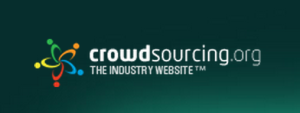 Six Free Crowdfunding Guides — Over the past few years, a number of platforms and consultants have put out pamphlets, blogs, and books about the keys to crowdfunding success. We share six free resources (focused on rewards-based crowdfunding) that project creators can turn to in order to get up to speed on what it takes to create a potent crowdfunding campaign. Creators should keep in mind that each project is different, so no guide will be a perfect blueprint.
Six Free Crowdfunding Guides — Over the past few years, a number of platforms and consultants have put out pamphlets, blogs, and books about the keys to crowdfunding success. We share six free resources (focused on rewards-based crowdfunding) that project creators can turn to in order to get up to speed on what it takes to create a potent crowdfunding campaign. Creators should keep in mind that each project is different, so no guide will be a perfect blueprint.
OTHER HIGHLIGHTS
 Crowdfunding is a growing topic of academic research ? and when smart people have something to say about the emerging method of financing, it?s always a good idea to pay attention. Recently, we came across a highly interesting article by Brian Frye, a professor at the University of Kentucky?s College of Law. The research, published in the Oregon Law Review, examines how crowdfunding can help to solve ?charity failures,? or charitable donations market inefficiencies.
Crowdfunding is a growing topic of academic research ? and when smart people have something to say about the emerging method of financing, it?s always a good idea to pay attention. Recently, we came across a highly interesting article by Brian Frye, a professor at the University of Kentucky?s College of Law. The research, published in the Oregon Law Review, examines how crowdfunding can help to solve ?charity failures,? or charitable donations market inefficiencies.Equity Crowdfunding: Weighing the Cost and Benefit of Individuals vs. Institutions 
Nate Nead, director at CrowdFund.co, a ?non-traditional investment banker,’ writes in to discuss the costs and benefits of equity crowdfunding for individuals and institutions, focusing on potential challenges for the nascent equity crowdfunding industry.
 Sean Roche, founder of the crowdfunding platform Lawfunder, writes in to explain what he sees as a key problem in accessing the legal system, and how the crowd may be able to help. Let us know what you think of his idea in the comments below.
Sean Roche, founder of the crowdfunding platform Lawfunder, writes in to explain what he sees as a key problem in accessing the legal system, and how the crowd may be able to help. Let us know what you think of his idea in the comments below.For Charities: Crowdfunding vs. P2P Fundraising 
We feature a guest article from Jesper Juul Andersen, ceo of BetterNow, a P2P fundraising platform for charities. “Crowdfunding is a term that is tossed around very liberally among charities, and it is often confused with Peer-to-Peer Fundraising,” Juul Andersen thinks. “The concepts are often used interchangeably, with one term being used instead of the other. This is an attempt at clarifying what the differences are and in what situations it makes sense to leverage these two fundraising methods.”
Placing the Research Triangle Park Startup Ecosystem into a Regional Innovation Policy Framework 
Thomas Vass, a registered investment advisor, and a regional economist, who manages a crowdfunding platform called The Private Capital Market, writes in to tell of North Carolina’s entrepreneurial history, and explains why he thinks it’s wrong to focus on startups and their exits, without looking at company innovation more generally.

